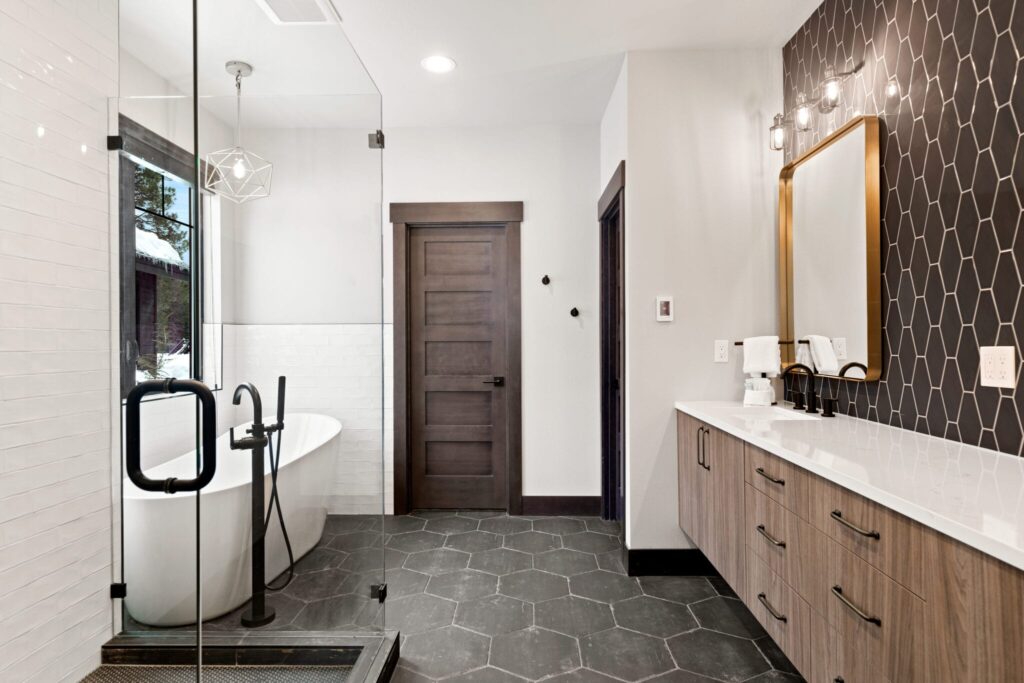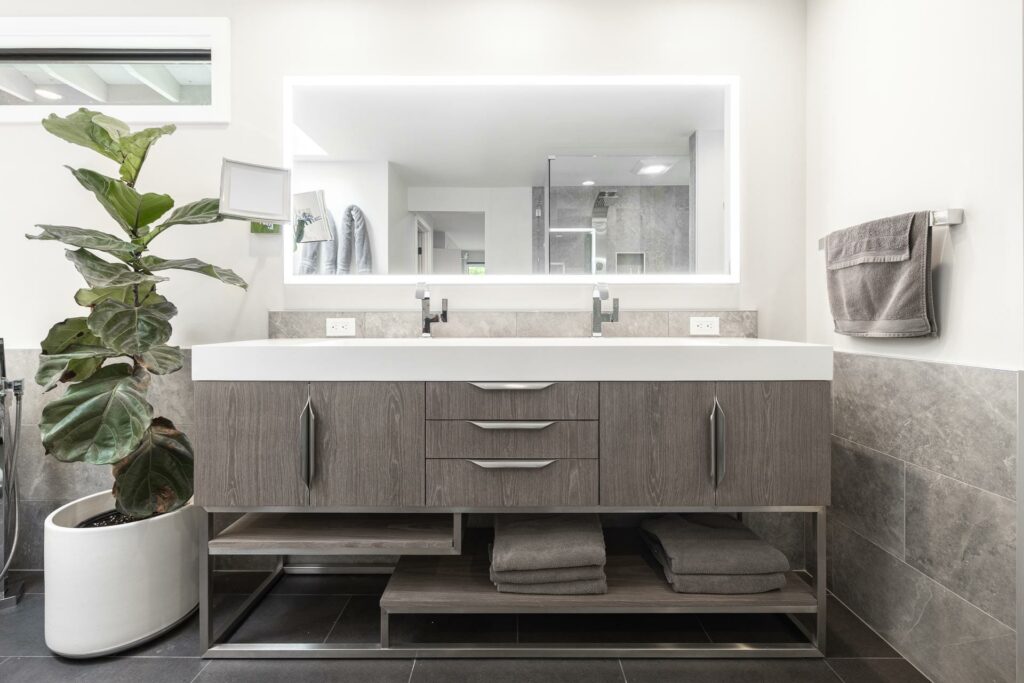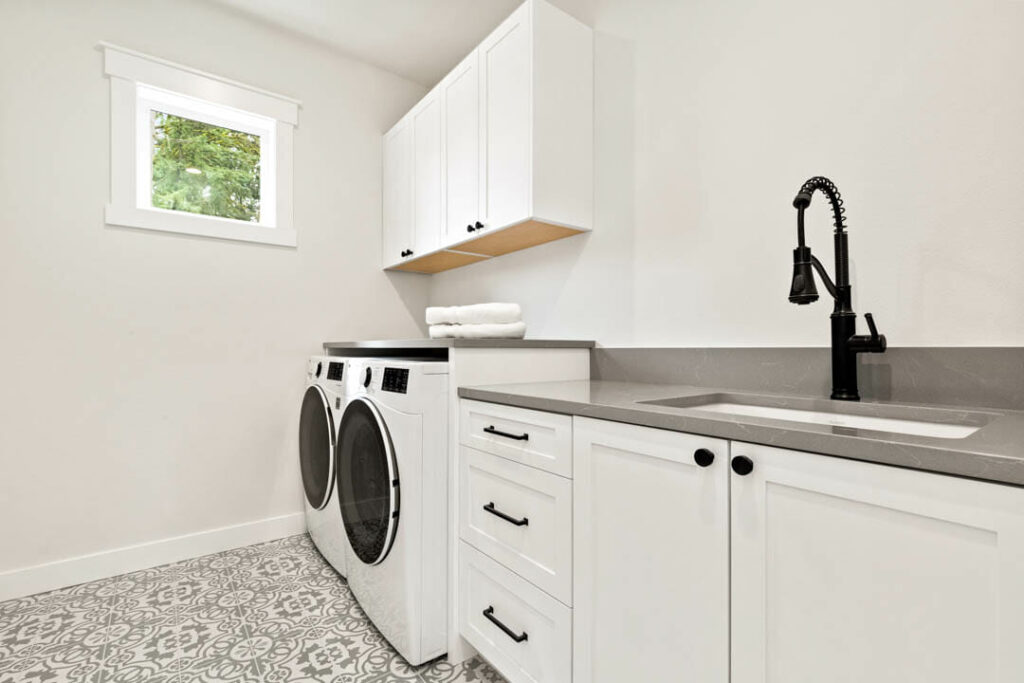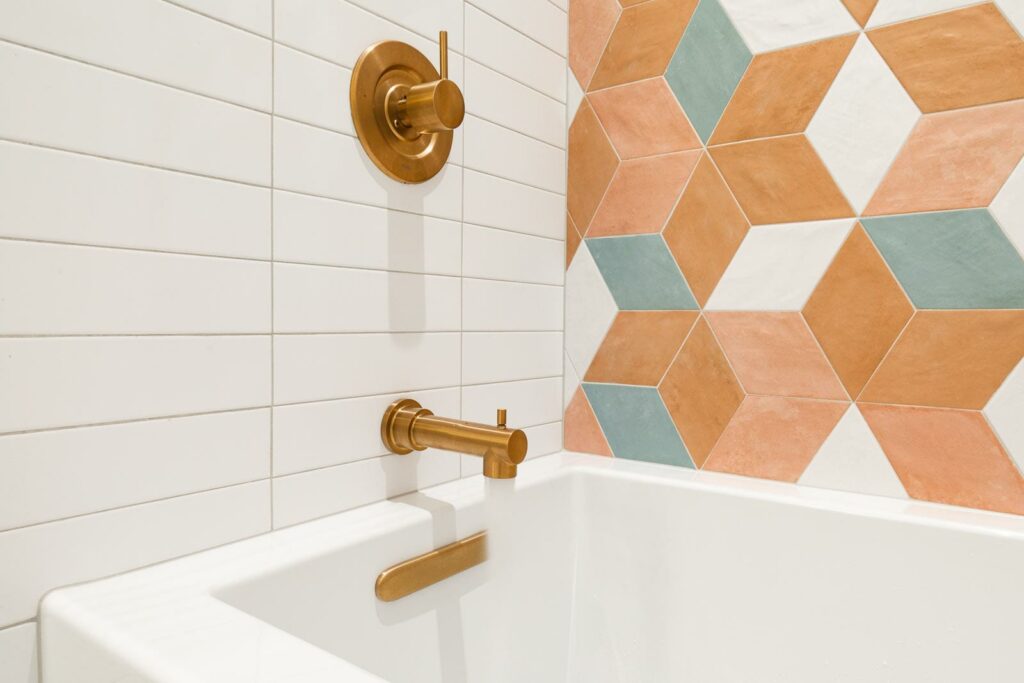Introduction
Grout is an essential component in any tiling project, providing both structural integrity and aesthetic appeal. However, not all grouts are created equal. Cement-based grout, a staple for many years, has its limitations, including susceptibility to stains, cracking, and difficult maintenance. Enter epoxy grout – a modern solution that offers numerous advantages. Let’s delve into why epoxy grout is often the preferred choice for homeowners and professionals alike.

1. Durability and Strength
One of the most compelling reasons to choose epoxy grout over cement-based grout is its exceptional durability and strength.
Cement-Based Grout:
- Prone to Cracking: Cement-based grout can crack over time, especially in high-traffic areas or spaces exposed to temperature fluctuations.
- Wear and Tear: It is more susceptible to wear and tear, which can lead to the grout breaking down and requiring frequent repairs or replacement.
Epoxy Grout:
- High Durability: Made from epoxy resins and hardeners, epoxy grout is incredibly strong and durable, capable of withstanding heavy use without cracking or deteriorating.
- Resistance to Damage: It is resistant to physical damage and can maintain its integrity in various conditions, making it ideal for high-traffic areas, commercial spaces, and homes with active lifestyles.
Why It’s Better:
- Epoxy grout’s superior durability ensures a longer lifespan, reducing the need for frequent repairs and replacements, thus saving time and money in the long run.
Why It’s Trending:
- The convenience and efficiency offered by smart technology are unparalleled.
- Smart homes provide a futuristic, customized living experience that appeals to modern homeowners.

2. Stain and Chemical Resistance
Epoxy grout excels in resisting stains and chemicals, a critical factor for maintaining the appearance and cleanliness of tiled surfaces.
Cement-Based Grout:
- Porosity: Cement-based grout is porous, meaning it can easily absorb liquids and stains, leading to discoloration and the growth of mold and mildew.
- Chemical Sensitivity: It can be damaged by strong cleaning agents and chemicals, which can cause etching or weakening of the grout.
Epoxy Grout:
- Non-Porous: Epoxy grout is non-porous, which means it does not absorb liquids or stains, keeping it looking clean and fresh even in areas prone to spills and moisture.
- Chemical Resistance: It is highly resistant to a wide range of chemicals, making it suitable for areas that require regular cleaning with strong agents, such as kitchens and bathrooms.
Why It’s Better:
- The stain and chemical resistance of epoxy grout makes it an excellent choice for maintaining a clean and hygienic environment, with less effort and fewer concerns about discoloration and damage.

3. Water Resistance and Mold Prevention
Water resistance is crucial, especially in wet areas like bathrooms, kitchens, and outdoor spaces. Epoxy grout’s water-resistant properties make it a standout option.
Cement-Based Grout:
- Absorbs Water: Its porous nature allows it to absorb water, which can lead to mold and mildew growth, damaging the grout and surrounding tiles.
- Regular Sealing Needed: To mitigate water absorption, cement-based grout needs to be sealed regularly, adding to the maintenance workload.
Epoxy Grout:
- Waterproof: Epoxy grout is inherently waterproof, preventing water from seeping into the grout and underlying surfaces.
- Mold and Mildew Resistant: Its waterproof nature significantly reduces the risk of mold and mildew growth, ensuring a healthier environment.
Why It’s Better:
- Epoxy grout’s water resistance eliminates the need for regular sealing and provides a long-lasting, mold-free solution, ideal for wet and humid areas.

4. Maintenance and Cleaning
The ease of maintenance and cleaning is a significant advantage of epoxy grout, making it a practical choice for busy homeowners.
Cement-Based Grout:
- High Maintenance: It requires regular cleaning, sealing, and occasional repairs to keep it looking good and functioning properly.
- Difficult Stain Removal: Stains can penetrate the porous surface, making them difficult to remove without harsh scrubbing and chemical cleaners.
Epoxy Grout:
- Low Maintenance: Epoxy grout is easy to clean and maintain, with a simple wipe-down often being sufficient to keep it looking pristine.
- Stain Resistant: Its non-porous nature means that stains sit on the surface and can be easily wiped away without extensive cleaning efforts.
Why It’s Better:
- The low maintenance and easy cleaning of epoxy grout save time and effort, allowing homeowners to enjoy their spaces without the constant worry of upkeep.

5. Aesthetic Versatility
Epoxy grout offers a wide range of aesthetic options, allowing for greater creativity and customization in tiling projects.
Cement-Based Grout:
- Limited Colors: While there are various colors available, cement-based grout can fade or discolor over time, limiting its long-term aesthetic appeal.
- Color Consistency Issues: It can be challenging to achieve consistent color throughout the grout lines, especially in large areas or when using different batches of grout.
Epoxy Grout:
- Vibrant Colors: Available in a multitude of vibrant colors that remain consistent and do not fade over time.
- Customizable: Can be mixed with glitter, metallics, and other additives to create unique, eye-catching designs.
Why It’s Better:
- The aesthetic versatility of epoxy grout allows for more personalized and enduringly beautiful tiling projects, enhancing the overall design and value of the space.

6. Application and Curing Time
The application and curing time of grout can affect the timeline and convenience of a tiling project. Epoxy grout offers advantages in this area as well.
Cement-Based Grout:
- Longer Curing Time: Requires longer curing times, often necessitating waiting periods before the area can be used.
- Complex Application: The application process can be labor-intensive, with a need for precise mixing and timing to avoid issues like cracking and uneven coloring.
Epoxy Grout:
- Faster Curing Time: Cures faster than cement-based grout, allowing for quicker project completion and use of the tiled area.
- Easier Application: While it requires careful handling due to its quick setting nature, epoxy grout can be applied more consistently and efficiently with the right techniques and tools.
Why It’s Better:
- Faster curing and easier application streamline the remodeling process, reducing downtime and allowing for quicker transitions between project phases.

7. Cost Considerations
While epoxy grout tends to be more expensive upfront, its long-term benefits can lead to cost savings over time.
Cement-Based Grout:
- Lower Initial Cost: Generally less expensive than epoxy grout, making it an attractive option for budget-conscious projects.
- Higher Maintenance Costs: The need for regular sealing, repairs, and potential replacements can add to the overall cost in the long run.
Epoxy Grout:
- Higher Initial Cost: More expensive initially due to the materials and specialized application.
- Long-Term Savings: Lower maintenance costs, reduced need for repairs, and longer lifespan contribute to overall savings over time.
Why It’s Better:
- The initial investment in epoxy grout is offset by its durability, low maintenance, and longevity, making it a cost-effective choice for the long term.

8. Environmental Impact
Considering the environmental impact of building materials is increasingly important. Epoxy grout offers benefits in this regard as well.
Cement-Based Grout:
- Higher Carbon Footprint: The production of cement contributes significantly to carbon emissions.
- Frequent Replacement: Shorter lifespan and higher maintenance lead to more frequent replacements, increasing waste.
Epoxy Grout:
- Lower Carbon Footprint: The production process for epoxy grout is less carbon-intensive than cement.
- Longevity: Longer lifespan reduces the need for frequent replacements, resulting in less waste and lower environmental impact.
Why It’s Better:
- Epoxy grout’s environmental benefits align with sustainable building practices, making it a greener choice for eco-conscious homeowners.

9. Professional vs. DIY Installation
The choice between professional and DIY installation can impact the decision to use epoxy or cement-based grout.
Cement-Based Grout:
- DIY Friendly: More forgiving and easier for DIYers to handle, making it a popular choice for self-installation.
- Professional Finish: While DIY installation is feasible, achieving a polished and even finish often requires professional expertise, particularly for large or intricate projects.
Epoxy Grout:
- Challenging for DIY: Requires specialized tools and techniques, making it more difficult for non-professionals to work with effectively.
- Professional Advantage: Professional installers are well-versed in handling the quick-setting nature and precise application of epoxy grout, ensuring a smooth and flawless result.
Why It’s Better:
- For those seeking a professional-grade finish with minimal hassle, epoxy grout installed by experienced professionals delivers superior results, making it a worthwhile investment for long-lasting, high-quality tiled surfaces.

Conclusion
Epoxy grout outshines cement-based grout in durability, stain resistance, water resistance, and ease of maintenance, making it an ideal choice for homeowners looking to enhance the longevity and aesthetics of their tiled spaces. While it may come with a higher upfront cost, its long-term benefits—such as reduced maintenance, fewer repairs, and superior performance—make it a worthwhile investment. At Eastside Kitchen & Bath, we recommend epoxy grout for its versatility and reliability, ensuring a flawless finish for any tiling project. Contact us today to learn how epoxy grout can elevate your next remodel.
